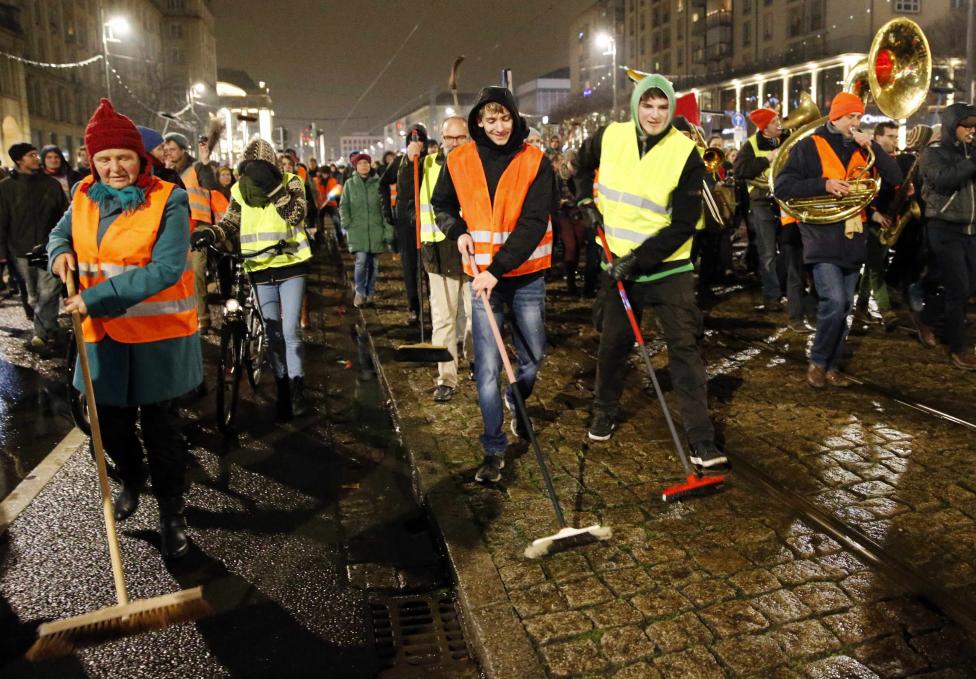Anti-Immigration Protests Rage In Germany as Gov't Appeal Falls on Deaf Ears

Around 18,000 people joined anti-immigration rallies in Dresden, Germany, on Monday despite appeals by Chancellor Angela Merkel and other leaders for Germans to stay away from such protests.
The protesters marched against what they consider as Europe's Islamization, given Germany's openness to welcome refugees from wars in the Middle East. These refugees, according to the New York Times, have bolstered Germany's labor force.
The number of participants was about the same as last month's protest action. In her New Year speech, Merkel asked Germans not to join the rallies. "Do not follow those who are appealing to you! Because too often there is prejudice, coldness, even hatred, in their hearts," she said.
The country's asylum policy is said to be among the most liberal in the world, partly due to Germany's Nazi past. In the early 1990s, Germany welcomed refugees from the Balkan wars.
Last year, asylum seekers rose to 200,000, four times the number two years ago, according to Reuters. The influx, however, has put a heavy burden on housing.
In Berlin, several hundred held an anti-immigration protest but were countered by several thousand pro-immigration demonstrators. The same happened in Cologne when a few anti-immigration demonstrators were opposed by a similar number of people on the other side of the social divide.
In a bid to deny anti-immigration protesters "picturesque backgrounds," The New York Times reported that church and city officials in Berlin switched off lights of the Cologne Cathedral, the Brandenburg Gate, and the TV tower at Alexanderplatz.
Speakers of the anti-immigrant crowd say they want to help refugees but not asylum abusers who freeload on the country.
The group also opposed what it saw as a "creeping Islamization of society," the newspaper showed.
This week, the Bavarian Christian Social Union-- Merkel's conservative bloc-- is expected to debate on a "fair and balanced asylum policy" which seeks to speed up the processing of asylum requests of legitimate refugees more quickly and the deportation of abusers.





